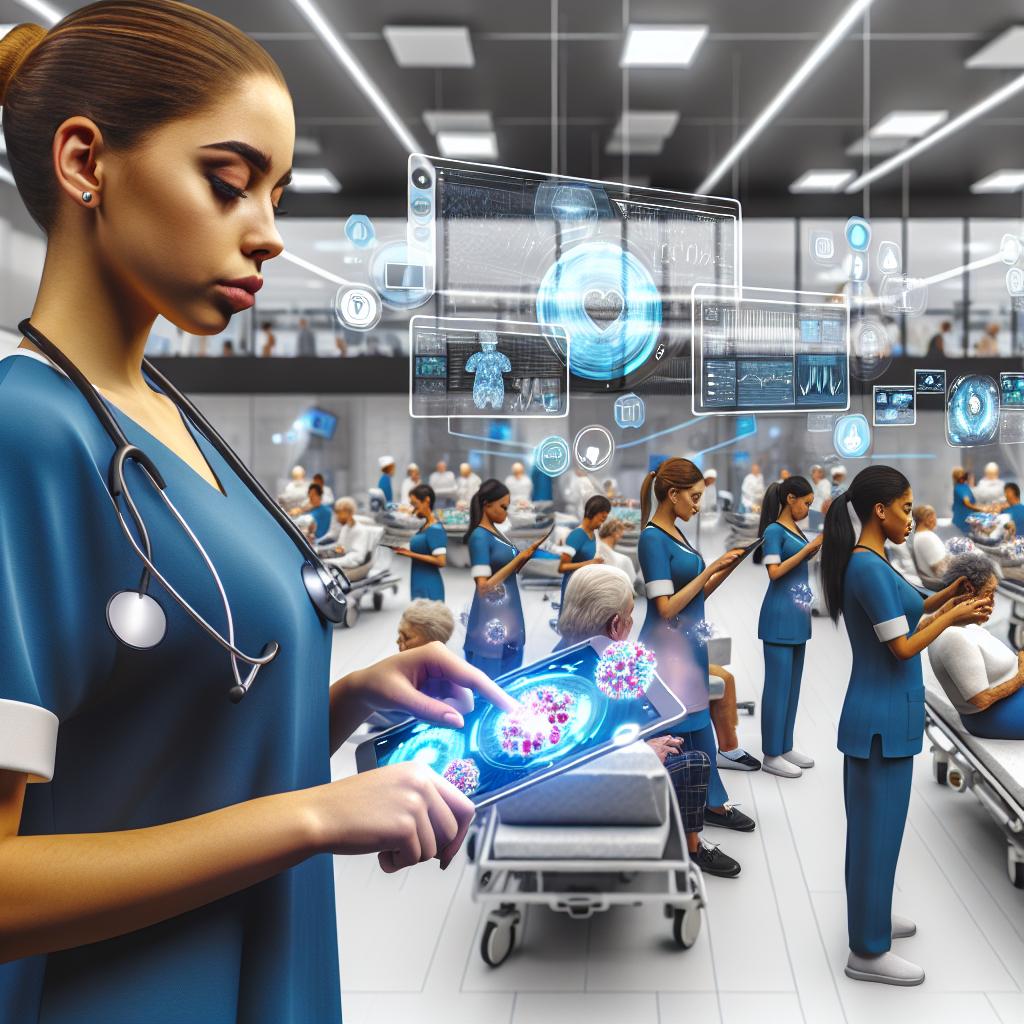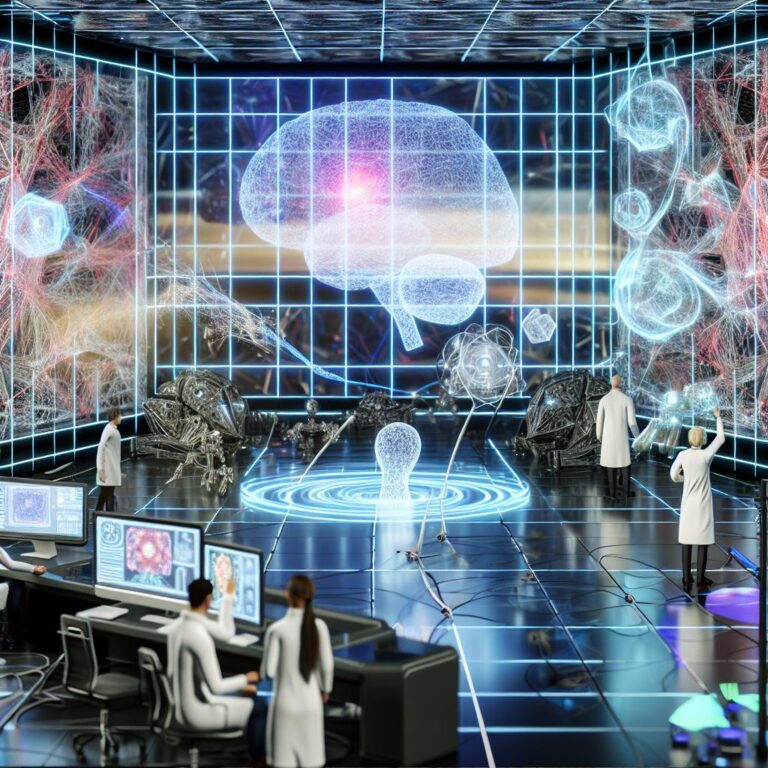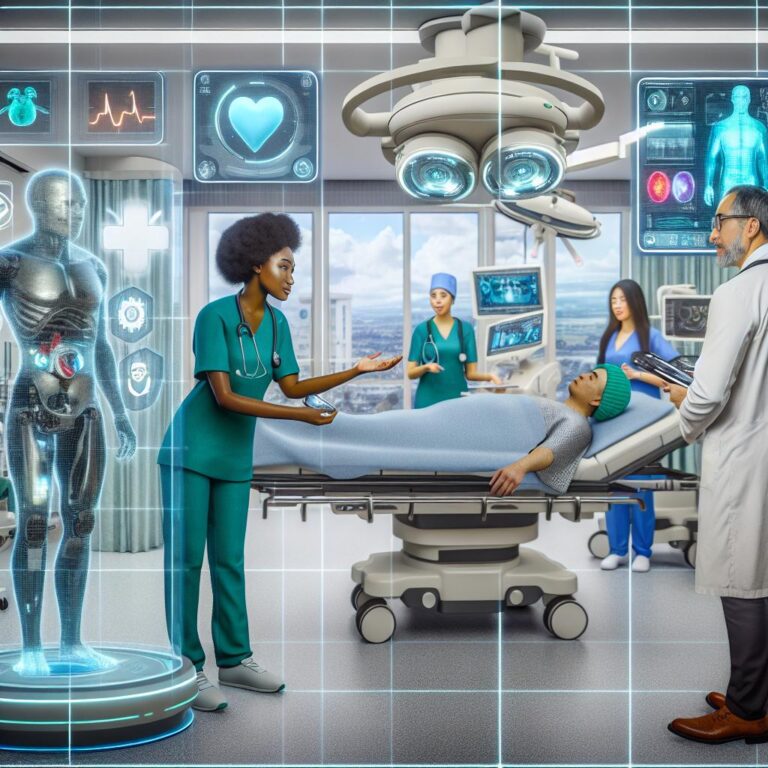
Health IT in Healthcare
- Health IT enhances healthcare by reducing errors, cutting costs, and improving efficiency.
- Key benefits include quick, accurate data access and personalized care through electronic health records (EHRs).
- Digital health supports telemedicine, patient portals, and timely care, boosting patient engagement.
- AI aids in faster disease diagnosis; robotics improve surgical outcomes; telemedicine expands post-pandemic.
- Cloud computing and blockchain enhance data storage and security, protecting privacy.
- Wearables monitor health, supporting preventative care.
- Data security is vital, with privacy toolkits ensuring compliance with HIPAA.
- Career opportunities in Health IT include Clinical Data Analysts and Health IT Support Specialists, with diverse educational paths like health informatics and computer science.
- Salaries range from $40,000 for entry roles to $80,000 for consultants.
Ready to dive into the impact of health information technology on care? Imagine how technology transforms patient care like a game-changer in your favorite mobile app. Technology isn’t just for gaming; it’s reshaping healthcare, making it smarter and more efficient. From enhancing patient outcomes to revamping healthcare delivery, digital health is a powerful player in the field. Let’s explore how these advancements are changing healthcare for the better.
How Does Health IT Impact Healthcare?

Health Information Technology, or Health IT, plays a vital role in healthcare today. This technology improves the quality of care that patients receive. It helps reduce medical errors, cut costs, and boost administration tasks. Health IT makes healthcare more efficient and expands access to affordable care.
What Are the Key Benefits of Health IT in Patient Care?
Technology in the healthcare field can lead to better patient outcomes through various means. It allows doctors to access data quickly and accurately, ensuring that patients get the right treatment faster. By using electronic health records (EHRs), doctors track and monitor patient histories without hassle. This leads to a more personalized approach to care and helps in making informed decisions.
How Has Digital Health Transformed Healthcare Operations?
Digital health has changed how hospitals and clinics work. For instance, telemedicine lets patients see doctors online, which saves time and travel costs. Digital health tools also include patient portals, where individuals can view their test results and communicate with their healthcare team. These advancements ensure timely and efficient care while maintaining transparency and improving patient engagement.
What Are the Current Trends in Health Information Technology?

The world of health information technology (HIT) is changing fast. Every day seems to bring new ideas and tools. Let me take you through some of the exciting news in this field.
What Are the Latest Advances in Healthcare Technology?
Healthcare is seeing some amazing breakthroughs. Artificial intelligence (AI) is now diagnosing diseases faster. AI can analyze images and detect issues that doctors sometimes miss. Robotics also helps in surgeries by making them less invasive, leading to quicker recovery times. Another key area is telemedicine. Imagine seeing a doctor without leaving your home. This tech has grown a lot, especially after the pandemic.
Which Trends Are Shaping the Future of Health IT?
The future of healthcare tech looks bright. Cloud computing is a big deal now. It helps hospitals save data safely and allows quick access anywhere. But, new regulations ensure everyone’s data stays safe. Blockchain technology promises to keep records accurate and secure by creating trusted digital ledgers. Finally, wearable devices track health stats, helping us understand our bodies better. More investments in such tech promise even more progress.
These trends shape how care providers work and make crucial decisions. Health IT changes the way we think about our health and the care we expect. For more resources on how these technologies work, check out this helpful guide on electronic health information privacy and security.
How Is Data Security Managed in Health IT?

Why Is Data Security Crucial in Healthcare?
Data security in healthcare is of utmost importance. Why? It keeps your health information safe. This prevents unauthorized access to personal data. A breach can lead to trust loss and identity theft. Health data breaches are a serious risk. They can impact both patients and healthcare providers.
How Are Privacy and Security Toolkits Utilized?
Privacy and security toolkits are key to safeguarding health data. These toolkits contain various guidelines and resources. They help manage information safely. They allow healthcare providers to ensure data stays protected. The Office of the Inspector General offers guidance on using these tools. They help healthcare staff stay compliant with HIPAA regulations. Implementing strong privacy tools keeps patient information secure.
What Career Opportunities Exist in Health Information Technology?

Do you want a job that helps people and uses technology? If so, health information technology, or health IT, might be for you. Health IT is all about using tech to make healthcare better. It could be your path to a meaningful career.
What Are the Educational Pathways for a Career in Health IT?
Wondering where to start? Health IT has many education paths. You can start with a degree in health informatics. This teaches you how to use data to improve care. You can also take courses in computer science related to healthcare.
But learning never ends. In health IT, new tech comes fast. So, you need to keep learning even after you get a job. Many universities offer online courses in health IT and health informatics. You can get certifications to help you stay current and grow your HIT job opportunities.
What Job Roles and Opportunities Are Available in the Field?
The field of health IT offers various jobs. One role is Clinical Data Analyst. They use data to help doctors make better choices. Another important role is Health IT Support Specialist. They help keep tech running smoothly in clinics.
Jobs are varied and salaries can be good. For example, a Health IT Consultant can earn $80,000 a year. Someone new, like a Health IT Technician, may start around $40,000. You can see, there’s room to grow, and your career can take many paths.
Conclusion
Health IT is reshaping healthcare. It improves patient care, boosts outcomes, and transforms operations. With tech’s role expanding, staying updated on trends and data security becomes vital. Emerging technologies and securing patient information drive the future. Meanwhile, career paths in health IT are broadening, with numerous educational options available. Each pathway offers exciting job opportunities. This tech evolution not only advances our systems but opens doors for new health careers. Embrace these changes to ensure a brighter healthcare future.






